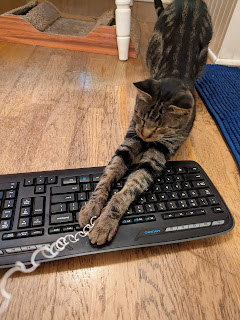I read at least one picture book a day. As a kindergarten teacher, I steer away from picture books that blatantly try and teach my students “lessons.” Adults who impose their morality onto unsuspecting 4 and 5-year-olds usually don’t hold the student’s interest. I am particularly sensitive about books that aren’t respectful of young children, seeing them as blank slates and not the interesting, thinking humans that they are.
Children want to hear stories. They don’t want to be preached to. But find a good story where universal themes are woven into the characters and their relationships, and you will hold the rapt attention of an entire class. I’m always on the hunt for these great stories that leave us hankering for a good discussion or leave us with a feel-good moment. Lately they feel like they’re few and far between.
Don’t get me wrong. The books my fellow picture book authors are writing and that publishing companies are buying are beautifully written. But compared to the literature from earlier decades, many feel like they are leaning out of storytelling as we knew it and are more no-nonsense books with sparse wording or non-fiction subjects. All have their merits and are well produced. They just lack the storytelling of years gone by when the wordcount hovered well above and over the current 500-word norm and were not influenced by the Common Core Standards.
In 2010 the Common Core Standards were adopted for education across the country. It’s my understanding they were not developed by educators but rather came out of the business and political community. Technically they came from The National Governor’s Association (a political organization founded in 1908) and The Council of Chief State School Officers. At the time I remember noticing a huge shift away from reading and writing fiction and a move toward non-fiction literature only.
As a kindergarten teacher, it didn’t make sense. It was completely out of balance. Literary learning shifted away from fantasy and toward nuts and bolts, cut and dry, no-nonsense reading and writing. I worried about how it would affect young children and their desire to read and write. I worried that storytelling would be devalued. I worried that the publishing industry would shift their product to meet the new demand. I think I was on to something thirteen years ago.
Social Emotional Learning has been a big buzz phrase, especially post pandemic lockdown. I’m finding many of the “message” books aren’t delighting us with story but are beating us over the head with be kind, be brave, be happy, be you, be special…you get the idea. So just the other day I reached back in time and pulled out what I consider to be an old classic, Stella Luna.
Stella Luna was written and illustrated by Janell Cannon and was published in 1993. I had forgotten how much I loved this picture book about the baby bat who gets separated from her mother and lands in a bird’s nest. So many intricate ideas in this book to ponder like: How we perceive each other, (The little bat is the loveable protagonist, although many people think of bats negatively. The birds are characterized in a less appealing way. Plus, they eat bugs, yuck!), Ideas of value, (who has it and who doesn’t?) Concepts of good and bad, (What constitutes good and what constitutes bad? What is good/acceptable behavior and what is bad/unacceptable behavior?) An exploration of right and wrong, (Who is right and who is wrong?) Point of reference, (How important is point of reference and context?) And then there’s judgement. (Who judges whom and why? What is normal and what is not? Who deserves love and who does not?) All this wrapped up in this book about a little bat who’s lost its mother and the family of birds who take her in. This book is timeless. None of these ideas have faded. They are more relevant than ever.
As a children’s book author, I like to think about…if I had written a particular book, what would I have written. Hands down, Stella Luna. I remember reading it in the 90’s when I was “author-curious” and being drawn to the irony of the story. This idea with all the above listed implications that turned my perception upside down in a delightful, intellectual way that didn’t insult young children. I wanted to write stories like that. I wanted to bring that twist that leaves you thinking about the story a little bit longer…that makes it linger in the edges of your mind.
By Zeena M. Pliska






















